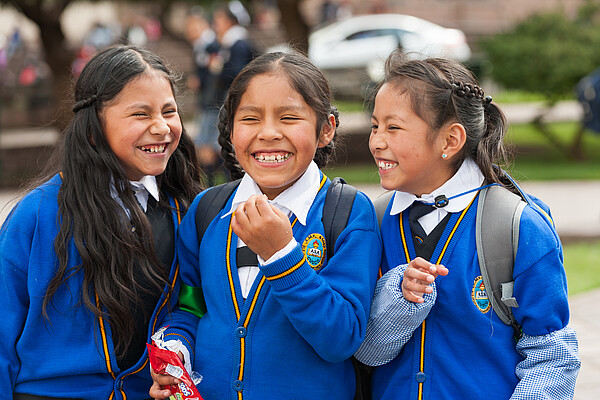The Internationaler Bund (IB) expresses concern about the recently presented UNESCO World Education Report. In it, the United Nations Educational, Scientific and Cultural Organization criticizes the growing inequality in education worldwide. The IB is itself an education provider on a large scale and operates several schools in Germany, for example.
UNESCO specifically criticizes the high costs associated with childhood education in many countries. State schools are often lacking, leaving private providers as the only option. However, only 27 percent of all states have regulations on the maximum cost of attendance. Elsewhere, limits exist but are not consistently enforced. As a result, many children around the world don't go to school at all because poor families can't afford the money.
In poor countries, private households contribute more to the education system
Admission to private schools is also rarely regulated by law. According to UNESCO, only seven percent of all countries have introduced quotas to enable children from families with little money to attend regularly. In richer countries, private households bear only 16 percent of the cost of the education system, compared with 39 percent in poorer ones, the report said.
"As an internationally active education provider, we always look beyond Germany's borders. We say quite clearly: every child worldwide should be able to go to school. It must not fail because of schooling costs, the states have to take care of that. That's why we support UNESCO's efforts in this regard," says Thiemo Fojkar, Chairman of the Board of the IB.




